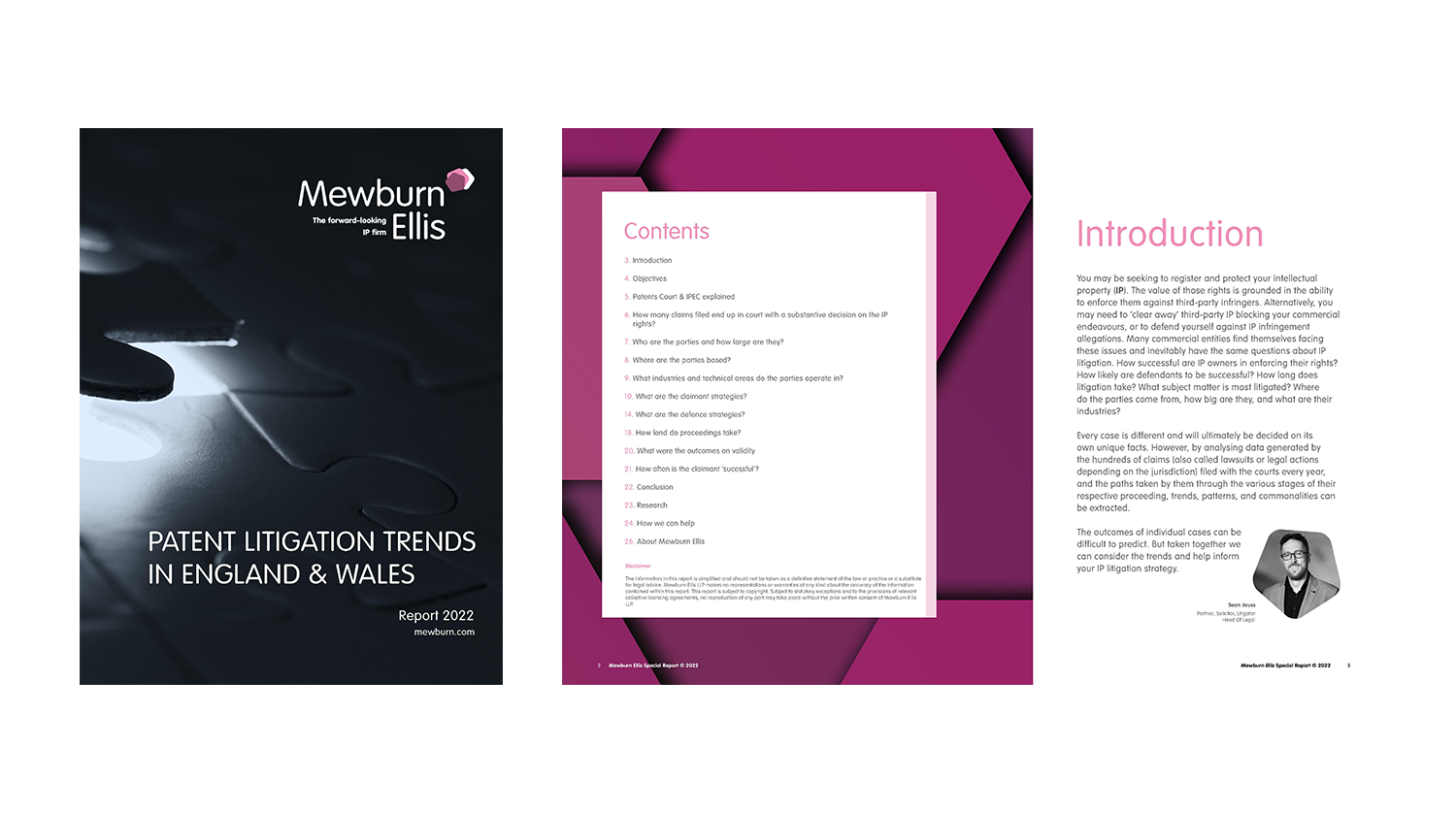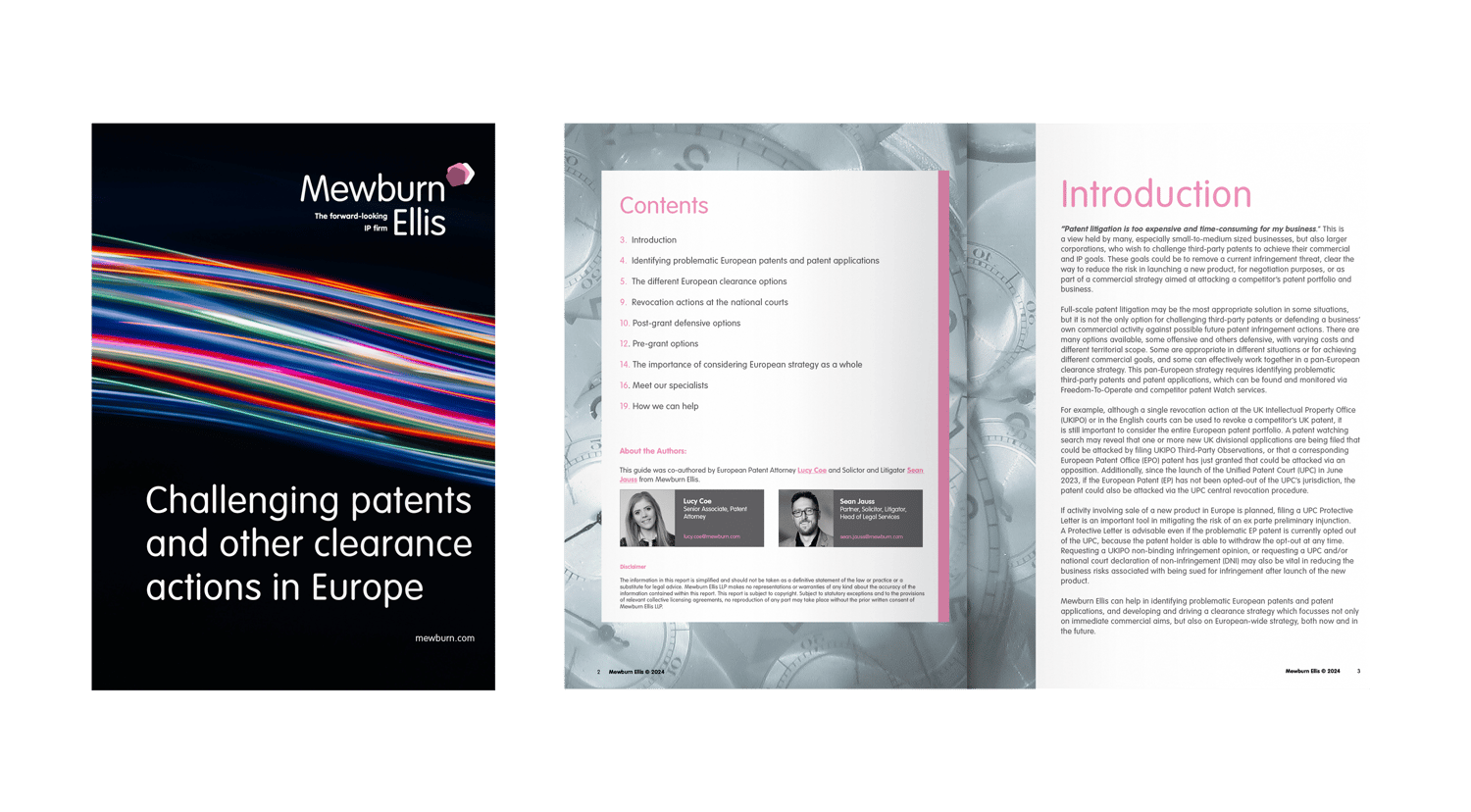Having invested in building a strong IP portfolio covering the goods and services of your business, you want to be able to enforce those rights against an infringer, or to defend them against allegations of infringement. In fact, being able to enforce and defend your intellectual property (IP) rights is often essential to their value, management and exploitation. But, whether enforcing or defending, it is desirable to be able to do so in a cost-effective manner which is commensurate with the importance of the IP asset and your budget.
A common perception of IP disputes is that they are time consuming and costly. Sometimes prohibitively so. Many assume that such disputes will inevitably mean years of business interruption, lost resources and sunken costs while teams of lawyers and barristers battle it out. With this reputation it is little wonder that many consider disputes, and in particular litigation, to be a tool only to be used by those with deep pockets or reserved exclusively for their most valuable “blue chip” IP assets. More corrosively, a perception can develop that enforcing your IP rights is not worth the trouble, or that you cannot fight off a “troll”. But if you cannot enforce your rights what is the point of them? And if you cannot defend against yourself against allegations of infringements, how can you stand up for your business? You want to be in a position to enforce or defend the value of your innovations, and your investment in making those innovations, in order to allow your business to benefit commercially from those innovations in the future.
Facing claims of being too expensive and cumbersome, and competition from other jurisdictions, in particular Germany, changes to IP litigation in England were necessary. This was identified in the Woolf and Jackson reviews. UK civil litigation had to become more accessible, cheaper, and faster. For IP in particular, the English courts developed the IP & Enterprise Court (IPEC) from the Patents County Court. It is designed to improve access to IP litigation by providing a less costly and complex alternative to the Patents High Court, allowing the claimant to get damages and injunction more quickly and with less risk. Specifically, the reforms streamlined court procedures, limited trials to one or two days, and imposed caps on recoverable costs (£50,000) and on the damages that can be awarded (£500,000). Other changes followed, including the introduction of the Shorter Trial Scheme (STS) at the Patents Court. These changes tied in neatly with an increased emphasis in the English civil procedure rules on Alternative Dispute Resolution (ADR). While England is a historically pre-eminent venue for IP litigation, these changes have re-emphasised the English courts as a centre for global excellence in handling IP disputes. This has been further helped in large part by a collection of IP specialist judges of world renown, a body of deeply experienced IP lawyers, and a range of trusted ADR options.
-1.png)



.png)
-Dec-29-2025-09-11-25-2361-AM.png)










